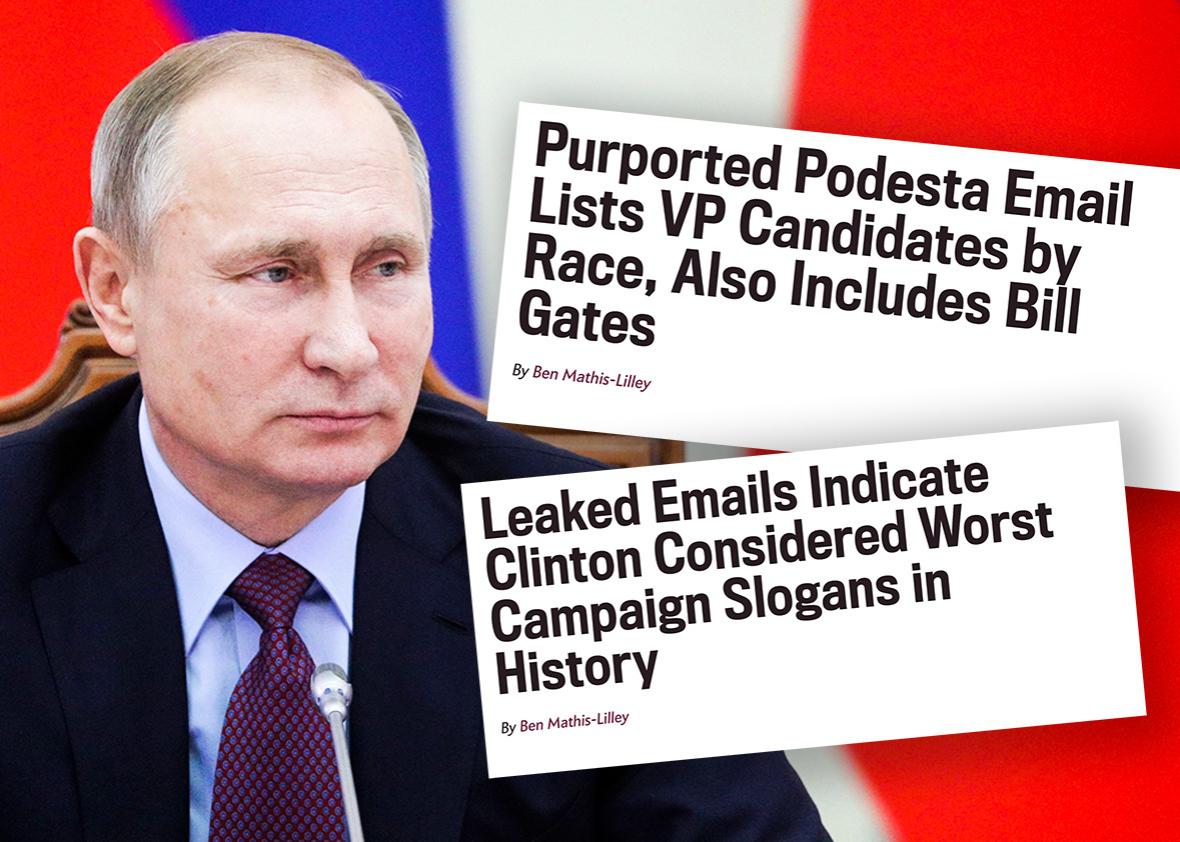
Photo illustration by Slate. Photo by Michael Klimentyev/AFP/Getty Images.
The big news Monday is about the fallout from Friday’s Washington Post and New York Times reports that top intelligence officials believe Russian actors obtained and released emails from the Democratic National Committee and Clinton campaign chairman John Podesta with the specific intent of helping Donald Trump win November’s election. There’s a lot we still don’t know about this story, including almost any of the specific information that purportedly indicates that Russia’s involvement in the leaks was meant to help Trump rather than merely to create chaos in the United States more generally. But for a moment let’s assume that the spooks are right and that Russia successfully intervened on Trump’s behalf. If that’s true, Slate—and pretty much every other publication in American media—was a dupe in a foreign campaign to sabotage American democracy.
Take a look at an excerpt from one of the posts I wrote about emails uncovered in the Podesta and DNC dumps:
Donna Brazile, who replaced a DNC party chairwoman who’d lost the confidence of the party’s rank and file by going too deep in the tank for Hillary Clinton, has gotten caught going too deep in the tank for Hillary Clinton. (And then lying about it.)
And:
The WikiLeaks hack of what are purported to be top Clinton adviser John Podesta’s emails has yielded another embarrassment for the campaign in the form of a March 3 message that lists potential vice presidential candidates in groups of Latinos, blacks, and women …
A third Podesta post mocked Clinton for considering what I described as “the worst campaign slogans in history.” (They were bad.) And lots of writers who are much more widely read than I am published similar pieces. If Russia really meant to batter Hillary Clinton’s reputation by relying on unwitting stooges in the press to amplify illegally obtained material, then, hey, mission accomplished!
Regardless of the intentions of whoever released them, though, no one has asserted that these emails aren’t real; the picture of Clinton and her campaign that they helped develop was based in fact. (Update, Dec. 13: Donna Brazile has in fact claimed—in less than coherent fashion—that emails attributed to her may have been “doctored.”) Journalists are generally obligated to print stories that are true and about subjects of public interest, and illegal leaks have been the source of some of the most important stories ever written. According to the traditional standards of journalistic ethics, abetting Russian saboteurs was the right thing to do in this situation.
But maybe there’s an identifiable difference between abetting an idealist whistleblower, or even an anonymous operative engaged in careerist infighting, and abetting a foreign government whose goal is quite literally to discredit the entire concept of human rights. One commonly accepted exception to the true-and-of-public-interest rule is that journalists don’t print information about subjects like troop locations that could get someone killed. What happens when the entity at risk isn’t a soldier, but a democracy?